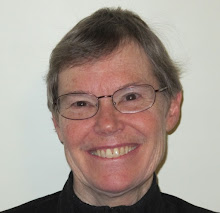Yesterday at a local Farmer's Market I bought fresh eggs from a farm that claims to have "free-range" chickens. I like the idea of chickens roaming outside and feeding naturally. I also enjoyed the varied colors of the eggshells and the good taste of the eggs.
In recent years the term "free-range" has been applied to children, too. I first heard it in 2009 in Springfield, MA, while attending an urban planning workshop on "Community Health through Design." The keynote speaker Mark Fenton said that most of us, when we grew up, were"free-range kids" -- free to go find other kids, be active outdoors, and learn many physical and social skills (e.g., how to pick teammates and start games) without close adult supervision. "Get out of the house until the street lights come on" was a common parental instruction according to a show of hands in that middle-aged and older audience. He lamented that most kids today are not allowed such freedom. There's a epidemic of inactivity and resulting long-term health and behavioral problems. What we want to do, he said, is create a world --safe walkable cities, bike trails, etc. --where today's kids can be "free-range."
Growing up in Danvers, I didn't think consciously of the freedom I had. My mother always wanted to know where I was, whether I was going next door to Granddaddy's, or up the hill by the barn, or down Nichols Street to my friend Janet's home. Compared to my friends' mothers, I felt that my mother was more restrictive about where I roamed. Mommy and I took for granted, however, that I could walk to Janet's all by myself, even though that was a long stretch of road lined by woods and fields. I was at liberty to spend hours away from home, as long as she knew where to find me. She'd ring the dinner bell loudly to call me home. I was indeed a "free-range kid."
Subscribe to:
Post Comments (Atom)

1 comment:
My sister recommended an article published in the N Y Times Opinionator blog June 30: The ‘Busy’ Trap
By TIM KREIDER. He writes, "Even children are busy now, scheduled down to the half-hour with classes and extracurricular activities. They come home at the end of the day as tired as grown-ups. I was a member of the latchkey generation and had three hours of totally unstructured, largely unsupervised time every afternoon, time I used to do everything from surfing the World Book Encyclopedia to making animated films to getting together with friends in the woods to chuck dirt clods directly into one another's eyes, all of which provided me with important skills and insights that remain valuable to this day. Those free hours became the model for how I wanted to live the rest of my life."
Post a Comment